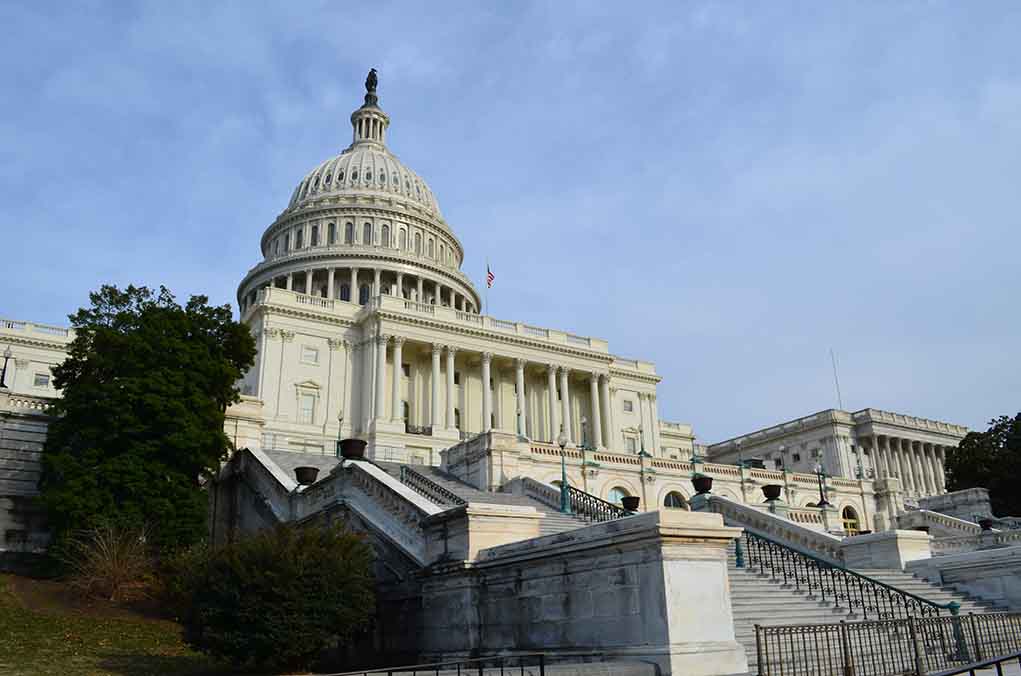
Attorney General Pam Bondi’s plan to eliminate DOJ’s Public Integrity oversight could give U.S. attorneys unprecedented power to prosecute political opponents without traditional safeguards.
Key Takeaways
- The Trump administration is considering removing the requirement for the Public Integrity Section to approve prosecutions of public officials
- This change would allow federal prosecutors to indict members of Congress without established oversight procedures
- Critics argue this removes important safeguards against politically motivated prosecutions
- The Public Integrity Section has already been reduced from 30 prosecutors under Biden to fewer than five under Trump
- Supporters claim the change addresses partisan exploitation from left-leaning factions within the DOJ
DOJ Overhaul Aims to Cut Red Tape in Public Corruption Cases
The Department of Justice under President Trump’s Attorney General Pam Bondi is preparing a significant overhaul to streamline prosecution procedures for public corruption cases. The proposed change would eliminate the requirement for the Public Integrity Section (PIN) to approve prosecutions of elected officials, including members of Congress. This adjustment would grant U.S. attorneys more direct authority to pursue cases against public officials without additional layers of bureaucratic approval that have historically been required for such sensitive prosecutions.
According to sources familiar with the matter, the proposal would fundamentally alter longstanding provisions in the Justice Department manual governing investigations of elected officials. While the proposal has not been finalized, it represents a significant shift from established protocols that have guided public corruption cases for decades. Assistant Attorney General Aaron Reitz has defended the administration’s approach, positioning these changes as necessary reforms to restore integrity to a justice system many conservatives believe has been weaponized against them.
Concerns Over Potential Political Influence
Critics have voiced concerns that removing PIN’s oversight could lead to inconsistent application of justice across jurisdictions. The Public Integrity Section has traditionally provided institutional knowledge and experience to ensure similar treatment of officials across party lines. The section’s role has been to maintain consistency in prosecution standards and prevent politically motivated cases from proceeding without proper scrutiny, serving as a check against potential abuses of prosecutorial power.
“The reason you have the section is exactly what this administration says they want, which is to stop politicization. That requires a respect and ability to understand how the laws have been applied in similar situations in the past. The only way to ensure that public officials on both sides of the aisle are treated similarly is to have as much institutional knowledge and experience as possible,” said Dan Schwager.
Under the current administration, the Public Integrity Section has already experienced significant reductions in staffing. Reports indicate that while 30 prosecutors worked in the office during the Biden administration, fewer than five remain today following resignations, reassignments, and terminations of those who disagreed with the new direction. This reduction in specialized oversight personnel has raised additional questions about the department’s capacity to maintain consistent standards in corruption cases.
Defenders Point to Double Standards in Previous Administration
Supporters of the change point to perceived inconsistencies in how these safeguards were applied during Trump’s prosecution when he was a presidential candidate in 2024. They argue that the PIN approval requirement did not prevent what they view as politically motivated prosecutions against Trump and his allies during previous administrations. This perceived double standard has fueled the administration’s determination to restructure how public corruption cases are handled throughout the federal justice system.
“Federal prosecutors across the country may soon be able to indict members of Congress without approval from lawyers in the Justice Department’s Public Integrity Section, according to three people familiar with a proposal attorneys in the section learned about last week. Under the proposal, investigators and prosecutors would also not be required to consult with the section’s attorneys during key steps of probes into public officials, altering a long-standing provision in the Justice Department’s manual that outlines how investigations of elected officials should be conducted.” The Post Breitbart
The proposed change comes amid heightened tensions following an investigation into a detention center riot involving immigration activists and certain Democratic lawmakers. Vice President JD Vance has commented that congressional membership should not exempt anyone from legal accountability, reinforcing the administration’s position that equal application of the law remains the priority behind these structural changes to DOJ operations.
Implications for Future Political Prosecutions
The elimination of PIN oversight would represent one of the most significant changes to how public corruption cases are handled in recent DOJ history. While proponents see the move as cutting unnecessary bureaucracy that has hindered legitimate prosecutions, others warn that removing these guardrails could enable politically motivated prosecutions to proceed without sufficient checks. The tension reflects broader debates about the proper balance between prosecutorial independence and oversight in cases involving elected officials.
“Since Trump took office, PIN has already been hollowed out, as have other DOJ offices. The 30 prosecutors working in the office at the end of the Biden administration have been cut to fewer than five. Several have resigned, been reassigned, or were fired after clashing with Bondi and other Trump appointees.” The Daily Beast Breitbart
As the Justice Department continues to evaluate this proposal, the outcome will likely shape how public corruption cases are pursued for years to come. For conservatives who have long criticized what they see as weaponization of federal agencies against their interests, these changes represent an important step toward accountability. The administration appears determined to reshape the department’s approach to public corruption cases, potentially transforming how political figures face legal scrutiny in the American justice system.




